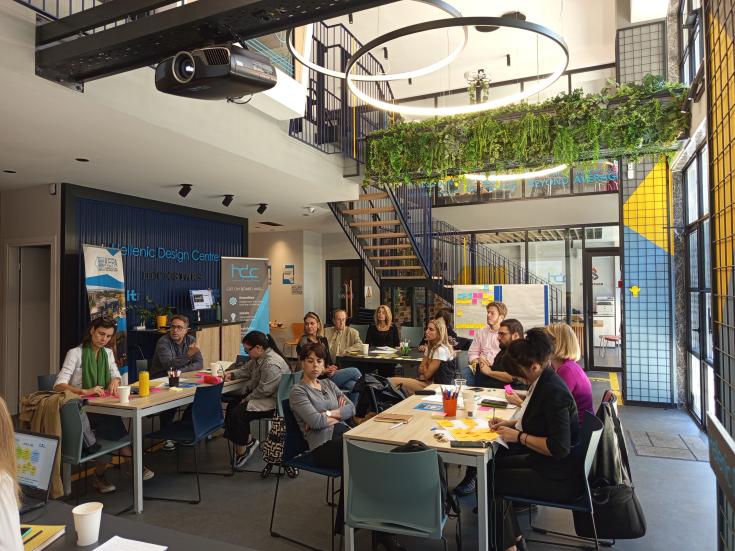Business and Cultural Development Centre (KEPA)

About the Region of Central Macedonia
Central Macedonia is located in Northern Greece, bordering Western Macedonia, Thessaly, Eastern Macedonia and Thrace, and the international borders with North Macedonia and Bulgaria. The region’s southern part is coastal, with the Thermaic, Toroneos, Singitic, and Strymonic gulfs. With nearly 2 million inhabitants, Central Macedonia is Greece’s second most densely populated region after Attica. It consists of seven regional units: Chalkidiki, Imathia, Kilkis, Pella, Pieria, Serres, and Thessaloniki, the historic capital and Greece’s second-largest city.
Central Macedonia roughly corresponds to ancient Lower Macedonia, including the capitals Aigai (Vergina) and Pella, the birthplace of Alexander the Great. It is Greece's fourth-most-popular tourist region and the most popular non-island destination. Thessaloniki is known for its UNESCO-listed Byzantine monuments, as well as Roman, Ottoman, and Sephardic Jewish structures. The city is a cultural hub and a center for urban tourism, gastronomy, and innovation.
About KEPA
The Business and Cultural Development Centre (KEPA), based in Thessaloniki, was founded in 1991 by the Federation of Industries of Greece (SBE) and the Greek International Business Association (SEVE). KEPA’s mission is to manage European and national programs to support private initiatives. Since 1993, KEPA has successfully managed over 100 national and regional programs, overseeing more than 30,000 business plans.
In 2011, KEPA expanded its activities by establishing an EU Projects Department to integrate the knowledge gained from EU-funded projects. KEPA focuses on three main pillars: Design Thinking, Microfinance, and Social Economy. The organization has participated in over 30 EU-funded projects, with a budget exceeding €21 million.
KEPA’s expertise has led to the creation of the Hellenic Design Centre (HDC) in 2017, which promotes Design Thinking in both the public and private sectors to enhance the competitiveness of Greek SMEs. KEPA has established strong partnerships with local and regional organizations and is recognized as a "Point of Reference in Regional Development" and a leading provider of business support services in Greece.
About PICOBELLO
KEPA brings valuable experience to the PICOBELLO project, with a strong background in co-creation methodologies and tools to address urban social challenges. As an active member of several European and international networks, KEPA’s involvement will contribute to the integration of the New European Bauhaus principles into regional actions for sustainable urban development.
The Metropolitan Area of Thessaloniki, the region's economic and cultural center, faces significant challenges, including social inequalities, pollution, traffic congestion, and the impacts of climate change. These issues affect the region’s infrastructure and hinder its potential for growth. The PICOBELLO project aims to address these challenges by strengthening the urban system of Central Macedonia and improving the functionality of urban areas for employment, living, and production.
Beyond Thessaloniki, the region has other urban centers with populations over 50,000, facing similar social and demographic challenges. Many of these centers depend on the local agri-food sector and face issues such as traffic, lack of green infrastructure, and unsustainable urban planning.
Through the PICOBELLO project, KEPA will leverage its experience from previous projects (e.g., Design4Europe, Design4Innovation) to help integrate sustainable urban development principles into regional actions. The project will also foster cooperation between regional stakeholders and expand the network of partners across Europe. This collaboration will lead to tangible results at the regional level, bringing benefits in terms of capacity building and creating a positive impact on the region.
Conclusion
KEPA’s expertise and involvement in the PICOBELLO project will contribute to building more sustainable, resilient, and inclusive urban communities in Central Macedonia. Through the exchange of knowledge and collaboration with local stakeholders, KEPA aims to make a significant impact on the region's urban development, ensuring a better quality of life for its residents.
